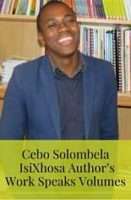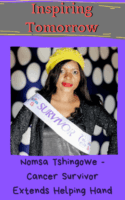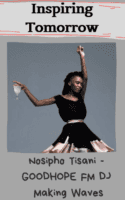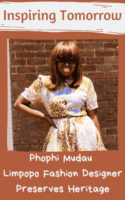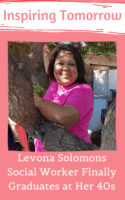July 18 was Nelson Mandela’s birthday and has been declared ‘Nelson Mandela International Day’ in honour and celebration of his life. Mandela Day encourages people to devote at least 67 minutes doing charitable work, because Mandela dedicated 67 years of his life in service to the public good.
However, Cebo Solombela (27) from the Nelson Mandela Institute treats everyday as Mandela Day, as he spends every waking minute of his life empowering others.
Cebo hails from Butterworth and his journey began in the dusty streets of Zazilwana.
“Zazilwana is a village that’s known for producing the best authors, and many isiXhosa writers use it in their stories. Growing up, I sang at church and did other activities. When I got to high school I started experiencing difficulties with languages, particularly English. I was good in Maths and Physics and I ended up not putting much effort into languages.”
But he couldn’t really evade English as it is still the language of instruction for both Maths and Physics, so Cebo just knew he had to catch up.
“My dad decided he’d bring me the newspaper every day so I could be exposed to the English language. There was a ‘words of encouragement’ section at the back of that newspaper I read.”
As if following his name, which loosely translates to ‘plan’, Cebo figured his way to educational victory.
“I started cutting out extracts of those inspiring words and compiled them in a book. I’d cut certain parts of a sentence to form my own inspirational paragraph and I even released that compilation book.”
When Cebo finally had a good grasp of languages, nothing else spoke to him:
“I went to varsity to do engineering but along the way I felt it wasn’t for me. While other students were doing their measurements, I was searching for Shakespearean poems. I started falling in love with languages. In 2007 I got to interact more with younger children as a Sunday school teacher, and I realised our languages were losing relevance in their lives and we needed to intervene.”
Cebo had adopted the fight to restore the importance of African languages, and made it his own.
“I had to come up with ways to make reading interesting and that’s when I released a book with a compilation of thirty poems, which I later converted to an audio book. I even had a glossary at the back of it, for the readers who missed that isiXhosa foundation phase.”
Here Cebo was, with a vision of getting children hooked on reading, but luring publishers onto his hook prove fruitless.
“I had to find publishers and that was a real hassle. That challenge lasted for too long and I could tell that my family was beginning to lose hope. I eventually approached the Arts and Culture Department and they helped me with R40 000 for printing. That challenge wasn’t yet over as I had to self-publish, and that is not a walk in the park at all.”
University is where most people pursue their passions but for Cebo it was different, it’s actually where he discovered his. His work since then has centred round language.
“In 2012 I worked as a news translator. I started compiling and translating news from English to isiXhosa and vice-versa.” Later, he got involved in National Book Week, which, “helped me understand and grow, and understand how written and spoken words connect. Now I’m a book reviewer and a translator as well. I also do story telling because I enjoy playing with children,” he says, adding he has a five-year-old son he’s grooming.
He’s now dedicated to paving the way for emerging writers, in the hopes that they can avoid the same struggles he went through.
“I got disappointed by publishers before and so that inspired me to start my own thing. I’m planning to republish my first book, and five other books, feature other younger writers. There are quite many vernacular writers but not enough platforms to showcase their potential. I’m trying to take them under my wing so that we can curb the scarcity of African languages books by creating them ourselves. We don’t want translated books.”
Cebo also weighs in on the importance of upholding African languages and our roots.
“You feel bad when you speak broken English but not as humiliated as when you can’t speak your own language! Language is your identity. Your roots are attached to it. How would you know where you’re going if you don’t even know where you come from? Our language connects us to our past and present family.”
Cebo doesn’t shy away from addressing what he believes is a, “link between God and ancestors.”
“God connects with us through our ancestors. I’m currently doing research for a book I’m busy with. I want to know about the lifestyle that our grandparents had back in the day, from what they ate to their dressing code. I want to introduce the new generation to the old information they don’t have access to. Some children don’t have grandparents [to impart this].”
Cebo’s currently studying towards his Bachelor of Arts (BA) in Education and believes it’ll get him even closer to languages.
Of course, he didn’t go back to the Eastern Cape after his Cape Town visit without leaving words of wisdom behind.
“Know who you are! When you know where you’re from you’ll know where you’re going. There’s light after dark. It’s never about how long it to took you to reach your destiny but your determination to get there,” he wraps up.


